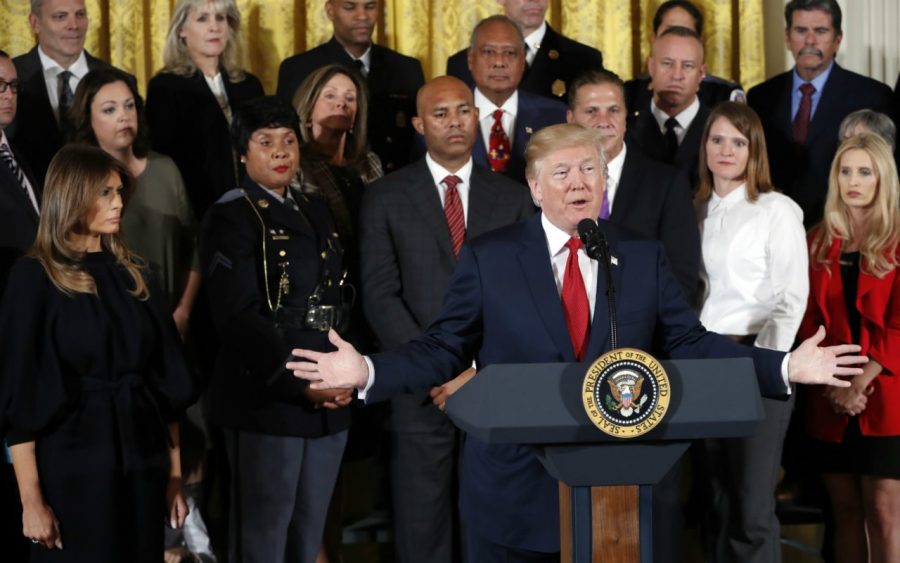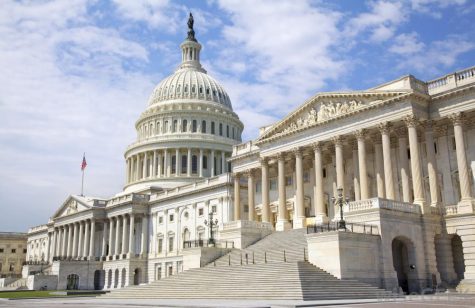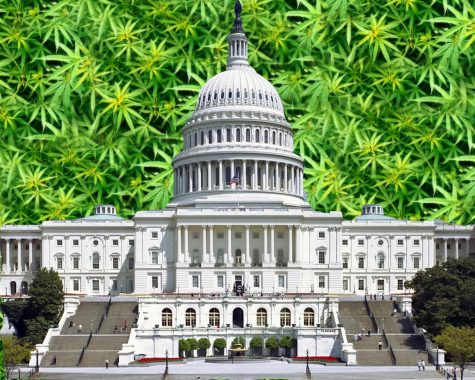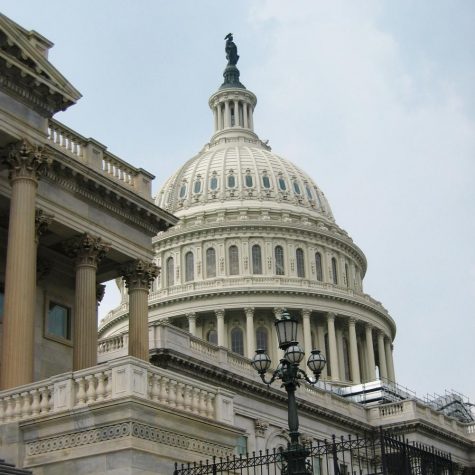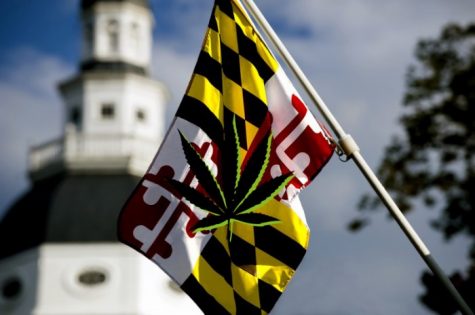Trump declares opioid crisis a ‘health emergency,’ but requests no funds
President Trump declared the opioid crisis a nationwide public health emergency on Thursday, a move intended to expand access to treatment and loosen current regulations.
However, the declaration will not bring new dollars in the fight of the epidemic of drug overdose, that kills tens of thousands of Americans each year.
“My guess is that the states are going to feel like the resources that become available from today’s declaration, especially financial resources, are not necessarily enough to address the challenges that they’re facing,” Lainie Rutkow of Johns Hopkins Bloomberg School of Public Health said.
In August, the president said he intended to declare a national emergency on the opioid crisis, but did not take official action afterwards. This week, administration officials said they would urge Congress to add new cash to the public health emergency fund that contains just $57,000, according to the Department of Health and Human Services.
“This epidemic is a national health emergency,” President Trump said. “As Americans, we cannot allow this to continue. It is time to liberate our communities from this scourge of drug addiction, never been this way. We can be the generation that ends the opioid epidemic. We can do it.”
According to the US Centers for Disease Control and Prevention, the number of Americans dying of an overdose involving opioids has quadrupled since 1999. In 2016, the drug crisis claimed more than 59,000 lives.
Meanwhile, Attorney Jeff Sessions blamed cannabis, and said Americans should “just say no” to drugs, despite recent news stating opioid deaths decrease in states with legalized cannabis.
“I do think this whole country needs to not be so lackadaisical about drugs,” Sessions said. “When you talk to police chiefs, consistently they say much of the addiction starts with marijuana. It’s not a harmless drug.”
“We’ve got to reestablish, first, a view that you should just say no,” he said. “People should say no to drug use.”
Some of the steps the administration would be taking in the fight of the epidemic consist in requiring federally employed prescribers to receive training in safe practices, allowing the hiring of specialists to tackle the crisis and expanding the use of telemedicine services to treat people in rural areas where doctors are in short supply. In addition, the government will advertise a campaign aimed at discouraging people, especially children, from picking up drugs in the first place.
Mr. Trump said he will also push the concept of non-addictive painkillers and come up with new solutions in the search for overdose treatments.
After Thursday’s declaration, experts estimate tens of billions of dollars will be needed to solve the epidemic. According to Andrew Kolodny, co-director of opioid policy research at the Heller School for Social Policy and Management at Brandeis University, no emergency declaration would be enough to alleviate the impact of opioids without a substantial commitment of federal money.
“What we need is for the president to seek an appropriation from Congress, I believe in the billions, so that we can rapidly expand access for effective outpatient opioid addiction treatments,” Dr. Kolodny said in an interview. “Until those treatments are easier to access than heroin or fentanyl, overdose deaths will remain at record-high levels.”



